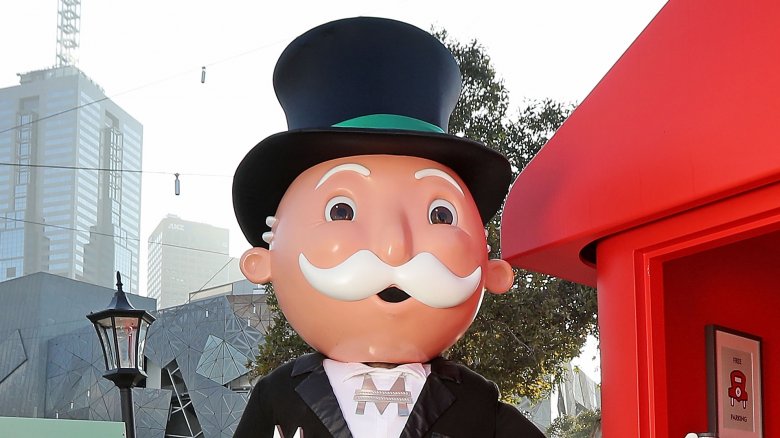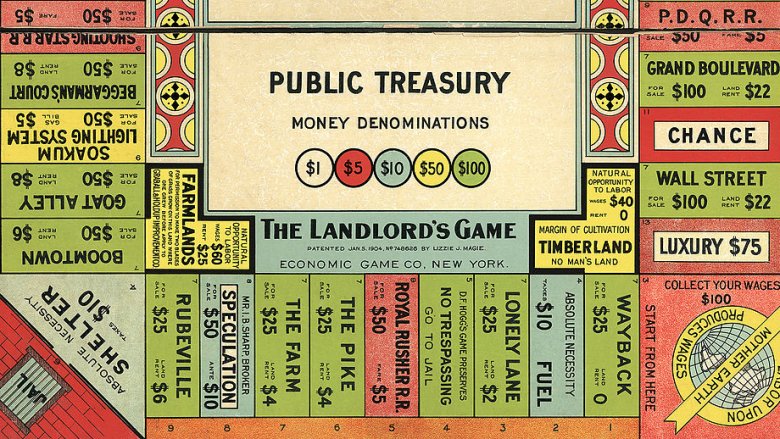What You Didn't Know About Rich Uncle Pennybags, The Monopoly Man
When the 2017 Equifax data breach compromised the personal information of more than 145 million Americans, an unlikely hero stood up on behalf of those affected by the fiasco. In one of the few times a leering uncle wasn't creepy, the Monopoly man, Rich Uncle Pennybags, "delighted onlookers by twirling his mustache, wiping his brow with a $100 bill and polishing his monocle" during a Senate hearing about the breach, per CBS.
The eagle-eyed observers at Cracked note that contrary to popular belief, neither of the actual mascot's eyes sports a monocle. But out-of-place eyewear was the least striking thing about the Senate spectacle. The Monopoly man was actually Amanda Werner of the nonprofit Americans for Finance Reform. She dressed as Pennybags to protest forced arbitration, which effectively provides a "Get Out of Lawsuit Free" card for companies like Equifax. This might seem counterintuitive, given that the Monopoly game as we know it is premised on amassing wealth at others' expense. But it really speaks to the richly ironic history of Rich Uncle Pennybags himself.
Rich Uncle Pennybag's creator was royally screwed
The Daily Beast reports that Rich Uncle Pennybags made his Monopoly debut in 1936 as a character on the Chance and Community Chest cards. The School of the Art Institute of Chicago credits political cartoonist Franklin "F.O." Alexander with designing the iconic mascot along with Jake the Jailbird and the "Go to Jail" Officer Edgar Mallory on behalf of the Parker Brothers, who purchased the rights Monopoly in 1935, according to Smithsonian. After laughing all the way to the bank with Alexander's work, the Parker Brothers monopolized the profits, and "the artist never received a penny."
The Monopoly Man is extremely ironic
The irony gets richer when you realize that Pennybags was likely based on the robber baron J.P. Morgan while Monopoly is based on an earlier board game that was designed to criticize robber barons like J.P. Morgan. Monopoly's original incarnation was The Landlord's Game. Patented by Elizabeth "Lizzie" Magie in 1904, the game contained familiar elements like going to jail and buying up railroads. But the express intent was to "to demonstrate the evils of accruing vast sums of wealth at the expense of others." In 1906, Magie would declare, "In a short time, I hope a very short time, men and women will discover that they are poor because Carnegie and Rockefeller, maybe, have more than they know what to do with." She's probably still hoping in her grave.


